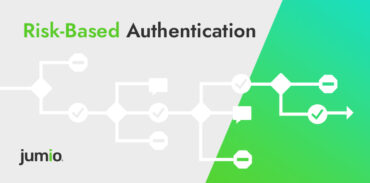Filter by
Most Recent
- Most Recent
- Most popular

All time
- All time
- This Month
- This Year


Google Veo 3 and the Deepfake Era: Why Businesses Need Better Protection Now
At Google I/O 2025, the company introduced its most advanced video generation model yet: Veo 3. With just a few words, users can now create realistic, high-resolution videos complete with dynamic camera movement, cinematic lighting, and lifelike human motion. While the possibilities for creativity and innovation are immense, so are the risks. For businesses, Veo…

Solutions to Enhance Your Fraud Detection System and Combat Identity Fraud
Identity fraud is a growing concern in our increasingly digital world. As technology advances, so do the methods used by fraudsters to steal personal and financial information. But what is identity fraud, how can we identify it, work to avoid it, and what systems exist to alert us when it may be taking place? Let’s…

Key Findings from the 2025 Jumio Online Identity Study [Infographic]
Now in its fourth year, the annual Jumio Online Identity Study explores consumer awareness and sentiment around issues involving online identity, fraud risks, and current methods used to protect consumer identity data. This year’s findings demonstrate a global shift toward distrust and anxiety in digital spaces. The Jumio study examined the views of more than…

A Chain Reaction: Fighting Identity Fraud with Connected Intelligence
A chain is only as strong as its weakest link. A team is only as strong as its weakest player. This idea comes with big implications — especially in the world of online fraud detection. In the fight against online identity fraud, your “team” isn’t just made up of internal tools and experts. It includes…

The Future of Biometrics: Enhancing Security with a Multimodal Approach
As biometrics play an increasingly pivotal role in digital interactions, the demand for responsible, transparent, and secure biometric solutions is higher than ever. With applications spanning financial services, healthcare, border control, and more, biometric technology touches nearly every aspect of our daily lives. Yet, as its use proliferates, concerns about accuracy, inclusivity, and ethical deployment…

Optical Character Recognition (OCR): Emerging Trends and Future Applications
Optical Character Recognition (OCR) technology has revolutionized the way we interact with various types of documents. OCR converts scanned paper documents, PDF files or images captured by a digital camera into editable and searchable data. Here’s how it works: OCR technology functions by recognizing and translating printed or handwritten text characters into machine-encoded text. The…

Risk-Based Authentication: Tailored Security Solutions for Every Industry
Security solutions are more important today than ever, as cyberattacks are almost guaranteed without measures in place. Industries across the board, from financial services to healthcare, face an ever-growing threat of fraud and unauthorized access. To combat these risks, businesses are increasingly turning to risk-based authentication (RBA) as a versatile and robust solution. This post…

Your Practical Guide to Effective eKYC Implementation [Infographic]
For online financial organizations, identity verification and eKYC solutions are essential for compliance. These solutions not only streamline customer onboarding processes but also play a crucial role in preventing fraud and ensuring compliance with regulatory requirements. Designing a robust eKYC system involves multiple factors to consider. This infographic provides valuable insights into the key considerations…

How Fraud Prevention Software Can Increase Data Security
Financial fraud impacts individuals, businesses and the overall economy, eroding the trust that exists with our financial systems. As a result, there is a heavy responsibility on financial institutions to not only protect funds but also proactively detect and prevent fraud risks. Organizations are intensifying their efforts to fortify defenses against cybercrime. Fulfilling regulatory requirements…

A Smarter Way to Combat Duplicate Account Fraud: Velocity Rules
In today’s digital landscape, businesses are increasingly vulnerable to fraud and abuse tactics, with duplicate account fraud emerging as a persistent challenge across various industries. From online gaming platforms and financial institutions to telcos and retailers, the challenge of managing multiple accounts opened by the same individual is becoming more complex as fraudsters exploit loopholes…

A Few Best Practices for Account Remediation
While using an ID document and a corroborating selfie for modern identity verification is becoming a widely accepted way to verify new customers, the bigger question remains: how do we verify all of our existing customers? It’s an important question and there are surprisingly few best practices published. What is Account Remediation? Account remediation is…

Still Authenticating Users With Their Social Security Number? Stop Now.
An enormous amount of sensitive information including Social Security numbers (SSNs) for millions of people could be in the hands of a hacking group after a data breach and may have been released on an online marketplace. Earlier this year the hacking group USDoD claimed it had allegedly stolen 2.9 billion records for citizens of…

